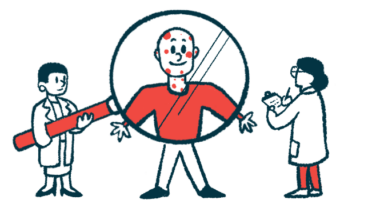Things I wish I knew after my daughter’s LEMS diagnosis
A mother offers encouragement to those new to the LEMS community

What is the first thing most of us did when the doctor mentioned Lambert-Eaton myasthenic syndrome (LEMS) as a possible diagnosis? We Googled it, of course. We know that, while the internet offers a wealth of information, it also documents every worst-case scenario. Still, desperate for information, we turn to the ever-knowing World Wide Web.
Searching the internet after receiving a diagnosis can be overwhelming and downright scary, as I learned after our daughter Grace was diagnosed with LEMS. I was anxious to know what treatments were available. Was there a cure? What were we facing statistically? I wanted to grab ahold of something that would tell me our daughter was going to be OK.
The following are some things I wish I knew after my daughter’s Lambert-Eaton diagnosis that the internet just couldn’t convey to me.
Fear is not welcome here
There are some sobering statistics regarding the link between cancer and LEMS. Hearing the C-word usually ignites fear immediately. And when our doctor suggests PET scans and lung CT scans to check for cancer, our fear factor has the potential to skyrocket.
According to the Muscular Dystrophy Association, 50-60% of LEMS cases are connected to another underlying disease, particularly small cell lung cancer. However, based on my interactions with the LEMS community, it doesn’t seem quite so prevalent.
There are many people diagnosed with LEMS who never show signs of cancer. But if cancer is in fact present, the onset of LEMS symptoms may help doctors detect it early, which often results in a better outcome for the patient.
We must be diligent in searching for cancer, but screening for it doesn’t mean its presence is inevitable.
It takes time, but improvement is possible
Most of us in the LEMS community would agree that we’re better off today than we were at the time of diagnosis. Our daughter has improved significantly over the past three years. It’s been slow going, but Grace has made great strides with a combination of treatments, medication, and physical therapy.
No two people will respond to a treatment in exactly the same way. However, the fact that we have options in our care is a huge benefit.
You are not alone
I felt very alone after Grace was diagnosed with LEMS. Our doctors at the time barely knew how to treat her, and they weren’t aware of any resources that could support us.
I’m not really sure how I found a LEMS Facebook group, but I’m so glad I did. Immediately, the administrator put me in touch with other moms of children with LEMS. Multiple people reached out via phone or email. They offered support and encouragement, as well as valuable information regarding medications.
No one should feel alone. There are so many people willing to reach out and establish relationships with those in need.
Hold on to hope
Hope matters. It’s necessary to my survival, and I fight for it every day. Without hope, I’m left with despair, which can overwhelm me. But when I change my perspective, hope can flourish.
We can all hope for new treatments and medications in the coming years. We can raise awareness of our disease so doctors will know how to treat it better. Finally, let’s not give up hope for an actual cure! I believe it can happen in my daughter’s lifetime. It’s simply impossible for me to think otherwise.
Note: Lambert-Eaton News is strictly a news and information website about the disease. It does not provide medical advice, diagnosis, or treatment. This content is not intended to be a substitute for professional medical advice, diagnosis, or treatment. Always seek the advice of your physician or other qualified health provider with any questions you may have regarding a medical condition. Never disregard professional medical advice or delay in seeking it because of something you have read on this website. The opinions expressed in this column are not those of Lambert-Eaton News or its parent company, Bionews, and are intended to spark discussion about issues pertaining to Lambert-Eaton myasthenic syndrome.








Leave a comment
Fill in the required fields to post. Your email address will not be published.